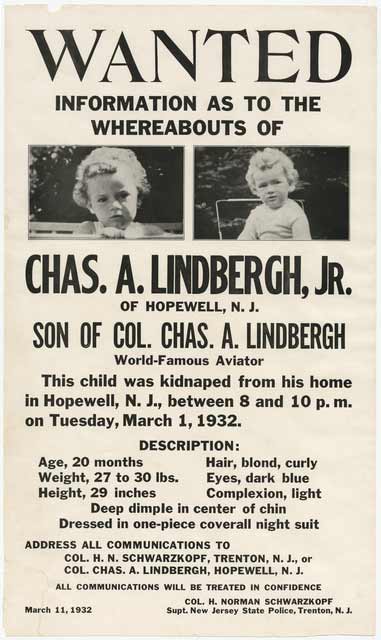 |
| Auerbach covered the Lindbergh Kidnapping as a reporter/photographer. (Photo credit: Wikipedia) |
Your
final paper should be a straightforward term paper, 3,000-4,000 words long with
standard footnotes and bibliography.
A
wide range of topics is acceptable. One might take a general issue like plagiarism,
protecting sources, invading privacy, cleaning up quotes, maintaining good
relations on a beat, accepting gifts, identifying the race or ethnicity of
people in the news, covering minority communities, identifying rape victims, sacrificing
accuracy in the service of being first, sensationalism in the news then and
now, treating New Age stories (pet psychics, astrology) seriously, refusing
to treat New Age stories seriously, cooperating with authorities by suppressing
information in war stories or crime stories or stories of “national interest.”
One might choose to be extra provocative: Is it possible for television
news to be ethical???
You
might also tackle specific events – the Lindbergh kidnapping; the Janet Cooke
fiasco; the run-up to the second Iraq war; famous undercover cases; the news
media and Trump’s electon; the news media and Clinton’s defeat; the Duke rape
case; the University of Virginia rape case – and probe their ethical
dimensions.
I
would keep in mind such things as: What are/the facts of the situation? What
is/was the common ethical view of the situation by those most intimately
involved in the situation? What is/was the common ethical view of the situation
at the time by those outside the situation, the experts, the pundits, the
public? To what degree do you think a more rigorous ethical analysis is needed?
That is, once you have collected opinions about the ethical issue, tell me what
you think, applying some of the techniques and ideas we have discussed
during the semester. (This is, of course, a golden opportunity to talk about
the strengths and the limitations of the Potter Box.)
Remember:
To pass this paper, you must cite three journalists with whom you have
been in contact – face-to-face, phone or email. They need not be currently
employed as journalists, which means other journalism faculty are fair game.




